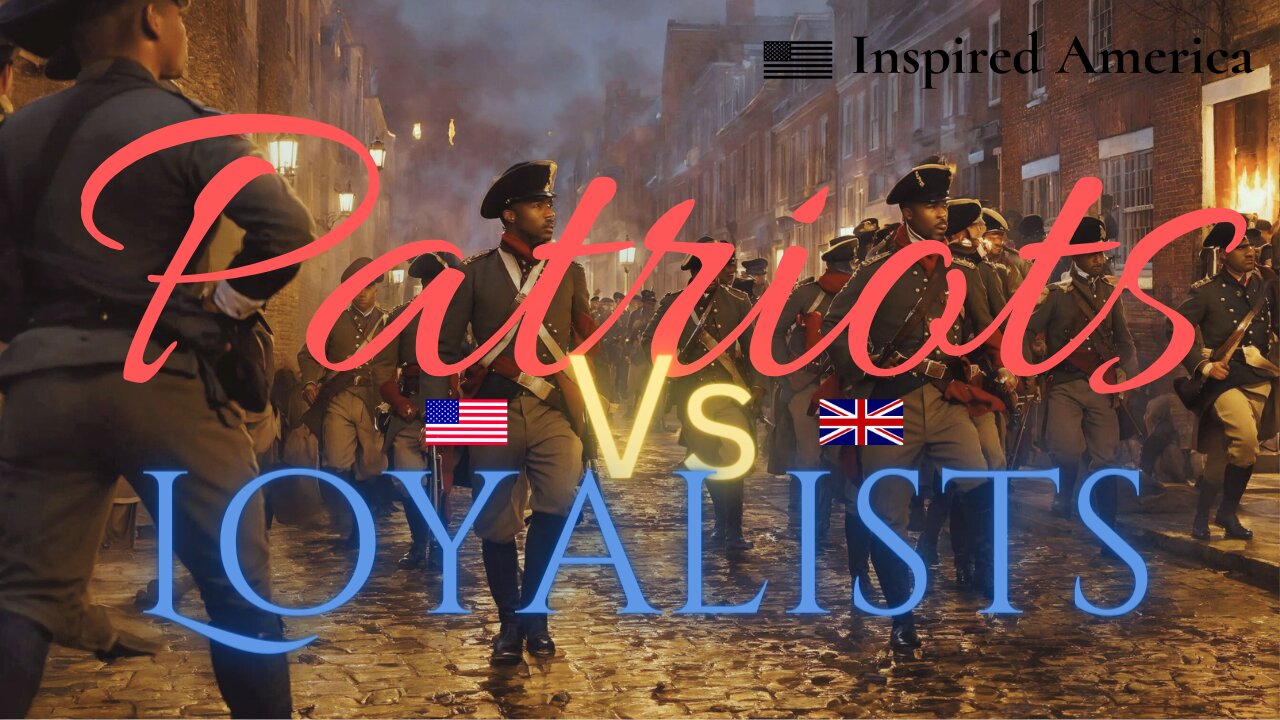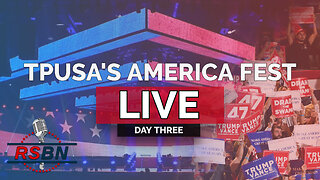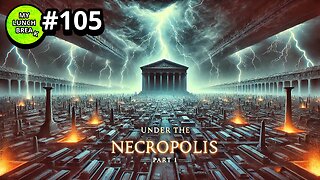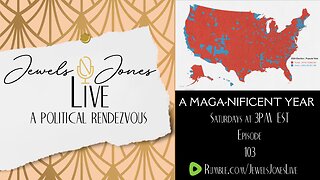Premium Only Content

Patriots vs. Loyalist: “A choice between Independence or Tyrannical rule”
Patriots vs. Loyalist: “A choice between Independence or Tyrannical rule”
Intro: The American Revolutionary War was not just a battle between British forces and American colonists seeking independence; it was also a fierce internal struggle. This conflict was rooted in the division between Patriots and Loyalists. The Patriots were committed to the cause of independence, while Loyalists remained loyal to the British Crown.
The rift between Patriots and Loyalists had deep historical roots. While the Boston Tea Party, Stamp Act, Sugar Act, Townshend Act, and other British policies triggered the American Revolution, the ideological divide between those who favored independence and those who supported the status quo had been brewing for years. Colonial newspapers and pamphlets became battlefields of ideas, further fueling the divide, see how all of this sounds familiar? Under the leadership of King George III, his pursuit of complete control never left his sole
Motivations of the Patriots:
Desire for Independence: Patriots believed in the principles of liberty, self-determination, and a government accountable to the people. They saw the American colonies as capable of governing themselves.
Resentment of British Rule: Overbearing British taxation causing financial strain and hardship on the daily lives of the colonists, infringement on basic unalienable God-given rights, and the presence of British troops in American cities fueled the Patriots' resolve to seek independence.
Inspired by Enlightenment Ideals: Many Patriots were influenced by Enlightenment philosophers who promoted reason, individual rights, and the social contract. These ideas drove their quest for a republic.
Motivations of Loyalists:
Preserving the Empire: Loyalists were concerned about the consequences of breaking away from the British Empire. They feared instability, economic turmoil, and the loss of the protection of the world's greatest military.
Cultural and Economic Ties: Some Loyalists had strong economic ties with Britain, and they believed in the cultural and social connections that bound them to the British Crown.
Fear of Radicalism: Loyalists viewed Patriots as radicals who would destabilize society and threaten the traditional social order.
The Patriots-Loyalists feud had significant consequences:
Civil War: The division sparked violent confrontations between neighbors and even family members. Communities were torn apart by opposing allegiances. We still see this today.
Forced Migrations: Loyalists who lost the war fled to Canada, the Caribbean, and other British territories, while some Patriots faced persecution from Loyalist communities.
Impact on Independence: The deep divide, while tumultuous, also reinforced the Patriots' commitment to seeking independence, leading to the Revolutionary War.
The Birth of a Nation: The feud ultimately played a pivotal role in the founding of the United States. Independence was achieved, and the Constitution was drafted to prevent future internal strife.
The conflict between Patriots and Loyalists left a lasting legacy:
Democratic-Republican: The American Revolution demonstrated that a diverse society could establish a government based on shared values rather than uniformity.
Protection of Rights: The First Amendment's right to free speech and the right to assemble were influenced by the Patriots' and Loyalists' debates.
National Identity: The feud contributed to the development of a distinct American identity, separate from British colonial rule.
Conclusion
The feud between Patriots and Loyalists almost reminds me of the feuds that we still see today. Where you have one party wanting more and more help from big government and giving up a little bit of their freedoms. And then you have another party who wants a small government and less assistance from the government and gaining a little more freedom.
was not just a historical footnote but a defining chapter in the American story. This struggle between those seeking independence and those loyal to the Crown shaped our nation's character, and values, and ultimately led to the birth of the United States, a nation built on the principles of liberty and self-determination.
At the conclusion of the American Revolutionary War, the fate of the Loyalists and Patriots diverged dramatically, reflecting their differing visions for the future of the continent. Loyalists, who had remained steadfast in their allegiance to the British Crown throughout the conflict, faced an uncertain and often hostile environment in the newly independent United States. Perceiving a profound sense of security in the established institutions and governance of Great Britain and its other territories, many Loyalists chose to relocate. A significant number returned to Great Britain, seeking the familiarity and stability of a society under monarchical rule. Others journeyed to Canada, where British control promised them continued protection and a government structure aligned with their loyalist principles.
The migration of Loyalists to Canada notably influenced the social and political landscape there, contributing to the development of Canadian society with a distinct loyalist heritage. This exodus was driven not only by a preference for monarchical stability but also by the immediate threats they faced in the United States, where they were often subjected to persecution, loss of property, and social ostracism.
In contrast, the Patriots, who had fought for and ultimately secured American independence, embraced the ideals of self-governance and individual liberty. They remained in North America, determined to build a new nation founded on principles of freedom. The Patriots envisioned a society where governmental interference was minimized, and personal freedoms were maximized. Their commitment to these ideals was enshrined in the creation of the United States Constitution, which sought to balance the need for effective governance with the protection of individual rights.
The departure of the Loyalists and the resolve of the Patriots to stay and shape their nascent country underscored a fundamental ideological divide. This divide not only influenced the immediate post-war period but also left a lasting legacy on the political and cultural development of North America. The Loyalists' move to Canada helped solidify its future as a distinct entity within the British Empire, while the Patriots' efforts laid the groundwork for the Constitutional Republic institutions and culture of independence that characterize the United States today.
OUTLINE:
00:00:00
Introduction
00:01:05
Motivations of the Patriots
00:02:05
Motivations of Loyalists
00:02:55
Consequences of the Patriots-Loyalists Feud
00:03:53
Legacy of the Conflict
00:04:35
Conclusion
Inspired Americal official site
https://www.inspiredamericahq.com/
Follow on X
https://twitter.com/InspiredAm68503
Follow on TRUTH
https://truthsocial.com/@InspiredAmerica
-
 40:01
40:01
CarlCrusher
17 hours agoSkinwalker Encounters in the Haunted Canyons of Magic Mesa - ep 4
31.1K2 -
 59:44
59:44
PMG
1 day ago $3.32 earned"BETRAYAL - Johnson's New Spending Bill EXPANDS COVID Plandemic Powers"
43.9K13 -
 6:48:50
6:48:50
Akademiks
16 hours agoKendrick Lamar and SZA disses Drake and BIG AK? HOLD UP! Diddy, Durk, JayZ update. Travis Hunter RUN
166K28 -
 11:45:14
11:45:14
Right Side Broadcasting Network
9 days agoLIVE REPLAY: TPUSA's America Fest Conference: Day Three - 12/21/24
350K28 -
 12:19
12:19
Tundra Tactical
16 hours ago $12.92 earnedDaniel Penny Beats Charges in NYC Subway Killing
69K12 -
 29:53
29:53
MYLUNCHBREAK CHANNEL PAGE
1 day agoUnder The Necropolis - Pt 1
158K52 -
 2:00:10
2:00:10
Bare Knuckle Fighting Championship
3 days agoCountdown to BKFC on DAZN HOLLYWOOD & FREE LIVE FIGHTS!
59.7K3 -
 2:53:01
2:53:01
Jewels Jones Live ®
1 day agoA MAGA-NIFICENT YEAR | A Political Rendezvous - Ep. 103
153K37 -
 29:54
29:54
Michael Franzese
19 hours agoCan Trump accomplish everything he promised? Piers Morgan Article Breakdown
138K80 -
 2:08:19
2:08:19
Tactical Advisor
23 hours agoThe Vault Room Podcast 006 | Farwell 2024 New Plans for 2025
200K11